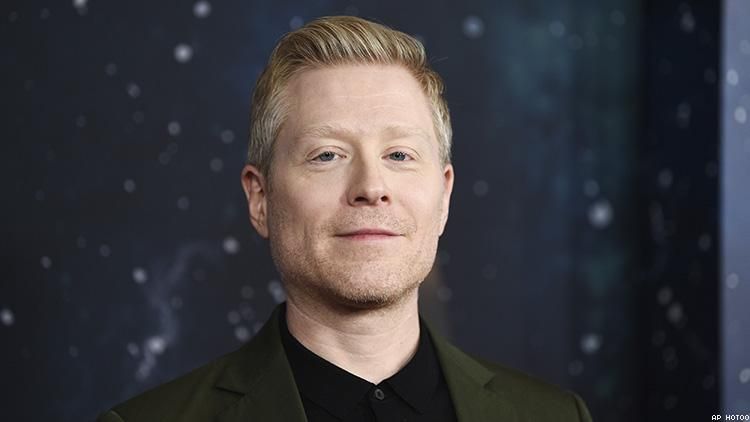GLAAD, the world’s largest lesbian, gay, bisexual, transgender, and queer (LGBTQ) media advocacy organization, in partnership with The Black List, an annual survey of Hollywood executives’ favorite unproduced screenplays, today announced The GLAAD List, a curated list of the most promising unmade LGBTQ-inclusive scripts in Hollywood that have been hosted on blcklst.com or were included on the 2018 year-end annual Black List.
The scripts on The GLAAD List represent the type of stories that GLAAD would like to see studios producing. With the proper attention, and with the collaboration of the right directors and actors, these scripts show tremendous promise and should one day become films that will both entertain audiences and change hearts and minds around the world.
“There is no more reputable source for discovering quality scripts in Hollywood than The Black List,” said Jeremy Blacklow, GLAAD’s Director of Entertainment Media. “The Black List’s commitment to elevating marginalized voices in the film industry is unparalleled and GLAAD is excited to lock arms with them in helping bring diverse LGBTQ stories to Hollywood’s attention.”
“The Black List is thrilled to be working with GLAAD to shine a spotlight on brilliant LGBTQ-inclusive scripts hosted on the Black List and beyond,” said Franklin Leonard the Founder and CEO of The Black List. “We are even more excited by the prospect that this spotlight will vault these films toward production and into theaters around the country and the world, bringing with them a more LGBTQ-inclusive culture and society.”
Methodology:
Unlike The Black List, an annual survey of Hollywood executives’ favorite unproduced screenplays, The GLAAD List is not voted upon via a survey; rather, it is curated by the staff of GLAAD based on a pool of the highest-rated scripts provided by The Black List which feature lesbian, gay, bisexual, transgender, and/or queer (LGBTQ) characters. A script may remain active on The Black List and The GLAAD List up until the first frame has been shot during production.
Scripts, provided by The Black List, were evaluated by GLAAD using the following criteria:
1. Fair, accurate and inclusive LGBTQ representation
2. Boldness and originality of the content
3. Potential impact of the media project
4. Overall quality of the written project
5. Passes the Vito Russo Test*
GLAAD’s selected scripts represent the most promising stories from the pool provided.
*To pass the Vito Russo Test, the following must be true:
- The film contains a character that is identifiably lesbian, gay, bisexual, transgender, or queer (LGBTQ).
- That character must not be solely or predominantly defined by their sexual orientation or gender identity (i.e. the character is comprised of the same sort of unique character traits commonly used to differentiate straight/non-transgender characters from one another).
- The LGBTQ character must be tied into the plot in such a way that their removal would have a significant effect. Meaning they are not there to simply provide colorful commentary, paint urban authenticity, or (perhaps most commonly) set up a punchline. The character should matter.
LOGLINES OF SCRIPTS: (in alphabetical order)
The Ecdysiasts, by Mary F. Unser – Soon the 13-year periodical cicadas will emerge from underground by the millions, molt and fill the air with their joyous, deafening song. Above ground, 13-year-old Trygg is struggling with his own emergence since the death of his older sister Katie. When lesbian entomologist Allison Armstrong moves in next door, she and Trygg become fast friends and make plans to celebrate the appearance of the cicadas.
The Enclosed, by Chris Basler – In 13th century England, Brigid, an anchoress living a hermetic existence in a church cell, stumbles upon a holy relic that may give her life new meaning — but when a sinister entity after the relic threatens her, she’s forced to confide in an impertinent servant girl with plans of her own.
Me & Tammy Faye at the Betty Ford Clinic, by Pamela García Rooney – The totally MADE-UP story of the unlikely bond between a Latina transgender woman and the queen of Christian televangelism, inspired by the very real life of Tammy Faye.
Paragraph 175, by Diane Hanks – In the storm of persecution that is Hitler’s rise to power, two lovers are torn apart and find themselves on opposite sides of the conflict: one a prisoner in a concentration camp, the other his captor.
Queen, by Harry Tarre – Based on the inspiring true story of the world’s first openly transgender high school Prom Queen, Corey Rae.
Scott, by Anna Rose Moore – After her best friend dies, a success-driven lawyer is left with an unwinnable case – a female inmate’s accusations of rape by her prison guards. She soon uncovers a massive systemic scandal of sexual abuse by prison staff and the network used to cover it up.
Three Months, by Jared Frieder – After being exposed to HIV the weekend of his high school graduation in 2011, a queer teenager from Miami must survive the three months it takes to get tested in this coming-of-age dark comedy about shame and resilience.
Trouble Man, by David Carlson – The incredible true story of unsung hero Bayard Rustin, the gay African American architect of the Civil Rights Movement and right hand man to Martin Luther King, Jr..
What If?, by Alvaro García Lecuona – An unassertive 17-year-old turns his high school on its head when he asks out his crush, a transgender girl.
Your Boy, by Matt Whitaker – Home for the summer on Long Island, a shy black college student comes out to his oldest and closest friend. But after an internship in Manhattan leads him to an exhilarating gay social scene, the 21-year-old is caught between his newly confident lifestyle and the unpopular straight friend who once knew him best.
If you’re an entertainment-industry professional who is interested in reading any of these scripts, please contact GLAAD’s Director of Entertainment Media, Jeremy Blacklow.
###
About GLAAD: GLAAD rewrites the script for LGBTQ acceptance. As a dynamic media force, GLAAD tackles tough issues to shape the narrative and provoke dialogue that leads to cultural change. GLAAD protects all that has been accomplished and creates a world where everyone can live the life they love. For more information, please visit www.glaad.org or connect with GLAAD on Facebook and Twitter.
About The Black List: The Black List, an annual survey of Hollywood executives’ favorite unproduced screenplays, was founded in 2005. Since then, more than 440 Black List scripts have been produced, grossing over $28 billion in box office worldwide. Black List movies have won 53 Academy Awards from 262 nominations, including four of the last ten Best Picture Oscars and ten of the last twenty-two Best Screenplay Oscars.
In October of 2012, the Black List launched a unique online community where screenwriters make their work available to readers, buyers and employers. Since its inception, it has hosted more than 55,000 screenplays and teleplays and provided more than 100,000 script evaluations. As a direct result of introductions made on the Black List, dozens of writers have found representation at major talent agencies and management companies, as well as sold or optioned their screenplays. Currently, the Black List hosts over 3,500 scripts for consideration by over 5,000 film industry professionals ranging from agency assistants, to studio and network presidents, to A-list actors and directors. More information on the Black List is available at
www.blcklst.com









